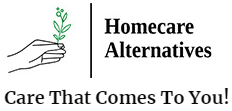In the realm of providing assistance and support to individuals in need, the terms “caregiver” and “caretaker” are often used interchangeably. However, a closer examination reveals nuanced differences in their meanings, roles, and connotations. In this comprehensive exploration, we will delve into the distinctions between a caregiver and a caretaker, shedding light on the unique aspects that define each role and the implications for those receiving care.
Defining the Roles:
Caregiver:
A caregiver is an individual entrusted with the responsibility of providing physical, emotional, and often medical support to those who are unable to fully care for themselves. This term is commonly associated with professional healthcare providers, family members, or friends who assume the role of primary support for someone facing challenges due to age, illness, or disability.
The duties of a caregiver can encompass a wide range of tasks, including:
- Assistance with Activities of Daily Living (ADLs): Caregivers may help with routine activities such as bathing, dressing, eating, and mobility.
- Medical Support: Some caregivers, especially those in healthcare professions, may administer medications, monitor vital signs, and provide basic medical care.
- Emotional Support: Caregivers offer companionship, emotional reassurance, and a caring presence, addressing not only physical needs but also the psychological well-being of the care recipient.
- Coordination of Care: Caregivers often act as liaisons between healthcare professionals, family members, and other support services, ensuring seamless and comprehensive care.
Caretaker:
On the other hand, a caretaker traditionally refers to an individual responsible for the maintenance, well-being, and supervision of property, animals, or objects. This term has historical roots in agriculture and estate management, where a caretaker oversaw the upkeep of land, buildings, or livestock.
The role of a caretaker typically involves:
- Maintenance and Oversight: Caretakers ensure the proper functioning and upkeep of a property or entity. This may involve repairs, cleaning, and general maintenance tasks.
- Supervision: Caretakers oversee the well-being of animals, plants, or other elements under their care. This can include feeding, grooming, and addressing the needs of the entities being cared for.
- Security: In some contexts, caretakers may have a role in security, safeguarding the property or assets they are responsible for.
Nuances in Connotation:
While both terms imply a sense of responsibility and nurturance, the connotations associated with “caregiver” and “caretaker” can differ based on context:
Caregiver Connotations:
- Compassion and Support: The term caregiver often conveys a sense of compassion, empathy, and a focus on the well-being of the individual receiving care.
- Healthcare Emphasis: Caregivers are frequently associated with healthcare contexts, indicating a more comprehensive approach to addressing physical and emotional needs.
- Personal Relationships: Caregivers are often family members or friends, highlighting the personal and emotional connections involved in caregiving.
Caretaker Connotations:
- Maintenance and Oversight: Caretakers are linked to the idea of maintaining and overseeing, suggesting a more tangible and physical aspect of responsibility.
- Property or Asset Focus: The term caretaker is commonly associated with the management of property, animals, or objects, emphasizing a duty to safeguard and preserve.
- Professional or Formal Roles: While caregivers can be both informal (family members) and formal (healthcare professionals), caretakers may be more commonly associated with formal roles in property management or estate care.
Bridging the Gap: Overlapping Responsibilities
In reality, the roles of caregivers and caretakers can intersect, especially in contexts where comprehensive care involves both personal support and the maintenance of physical spaces or assets. Professionals working in senior living facilities, for example, may find themselves adopting aspects of both roles as they attend to the well-being of residents and ensure the proper functioning of the facility.
The Evolution of Language and Roles:
Language evolves to reflect societal changes, and the terms “caregiver” and “caretaker” are no exception. The interchangeable use of these terms in modern discourse indicates a broadening understanding of the roles involved in supporting individuals, whether in a healthcare setting or in the context of property and asset management.
Nurturing and Preserving
In essence, the distinctions between a caregiver and a caretaker lie in the nuances of language and historical usage. While caregivers emphasize the nurturing aspects of support, caretakers underscore the preservation and oversight involved in their responsibilities. In practice, individuals in both roles contribute significantly to the well-being of those under their care, whether it be in the realm of personal relationships or the stewardship of physical spaces and assets. As language continues to adapt to our evolving understanding of care, the essence remains constant: the commitment to ensuring the welfare and thriving of those in need, be it in matters of health or the preservation of the spaces we inhabit.
Homecare Alternatives, Gainesville, FL: Care That Comes To Your Home! Call, today: 352-681-8993


 RSS - Posts
RSS - Posts